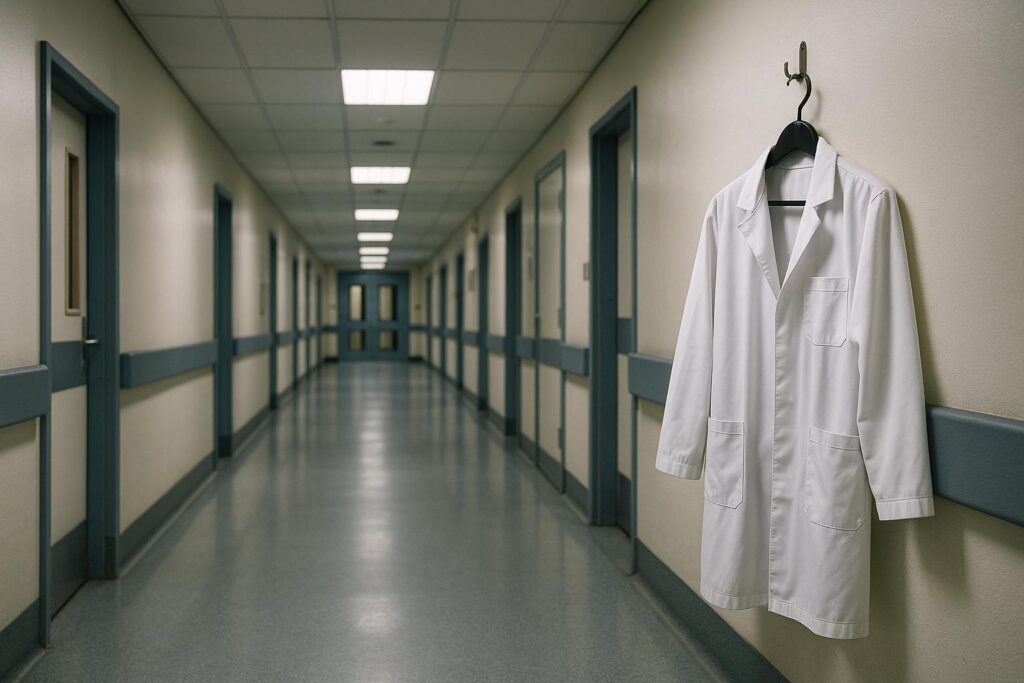Thousands of resident doctors across England embark on a five-day strike amid deepening disputes over pay, job security, and staffing shortages, raising fears of unprecedented pressures on the NHS this winter.
Thousands of resident doctors across England have commenced a five-day strike, escalating a bitter dispute over pay and job security amid warnings of the most challenging winter yet for the NHS. The walkout highlights deep frustrations within the medical workforce, intensified by staff shortages and the rising threat of flu outbreaks that risk overwhelming services.
Arthur Joustra, a 27-year-old paediatrics trainee based in Nottinghamshire, told The Independent that striking was a reluctant but necessary step. “No doctor wants to be on strike,” he said. “I love my job, I love helping patients… but the immediate harm caused by strikes is to try and prevent that future harm as waiting lists lengthen and staff shortages worsen.” Joustra’s comments underline the difficult position doctors face: grappling with pay that has not kept pace with inflation, and frustrations over a lack of available specialist training places which leave many trainee doctors unable to progress their careers.
The British Medical Association (BMA), representing resident doctors, has criticised the government for failing to propose a credible plan to address these issues. Despite a 22% pay agreement reached last year, doctors remain dissatisfied with the government’s latest pay offer of around 5.4%, far below the 29% uplift the BMA says is needed to restore pay to 2008 real-term levels. This pay erosion, combined with a bottleneck in training opportunities, has resulted in thousands of doctors either unable to find posts or relocating abroad for better conditions, a situation described by Dr Joustra as a crisis few anticipated when joining medical school.
Health Secretary Wes Streeting has condemned the strike as “unreasonable and unnecessary.” Speaking on LBC and to the Health and Social Care Committee, he criticised the BMA’s handling of the dispute, particularly their advice to doctors not to inform employers about strike participation, which he described as “unconscionable.” Streeting has emphasised that resident doctors have received a pay increase of nearly 30% over the past three years, and has cited public finance constraints as a barrier to additional pay rises in 2025-26. His offer, which included doubling available specialist training places to 1,000 and covering mandatory exam fees, was rejected by the BMA, who argue it falls far short of resolving the core issues of job security and fair pay.
The dispute has already had a significant financial impact on the NHS. Estimates suggest that the previous strikes in July cost NHS trusts around £300 million, compounding existing pressures. NHS England’s national medical director, Professor Meghana Pandit, expressed frustration at the timing, warning of rising flu cases leading to increased staff absences.
The BMA council chair, Tom Dolphin, highlighted the “job crisis” facing resident doctors, stressing that many trainees face unemployment without an expansion in training opportunities. He maintained that doctors’ pay remains significantly below historic levels in real terms, despite recent increases. “We’re still a fifth down on our pay compared to 2008,” he said, calling for a multi-year pay restoration plan.
Hospital leaders are preparing contingencies to manage the disruption, including cancelling some elective appointments, deploying additional staff, and prioritising emergency care. The NHS Confederation and NHS Providers have warned that continued strikes put further strain on already stretched resources.
Within the medical community, there is division over the strike action. While the BMA leadership stands firm on the necessity of industrial action, Health Secretary Streeting has reported that numerous resident doctors privately express dismay at the decision, believing their leaders are out of touch with both patients and frontline medics.
As the strike proceeds, the potential for further action remains if talks between the BMA and the government do not yield a satisfactory resolution. The BMA has stated it is open to negotiations but has yet to be contacted by the Health Secretary since the strike began. With winter pressures mounting and the NHS grappling with workforce shortages and pay disputes, the situation remains critical.
📌 Reference Map:
- [1] (The Independent) – Paragraphs 1, 2, 3, 5, 6, 8, 9, 11, 12
- [2] (Reuters) – Paragraphs 2, 4, 7, 9, 10
- [3] (ITV News) – Paragraph 4
- [4] (The Guardian) – Paragraphs 4, 5, 9, 10
- [5] (The Guardian) – Paragraphs 7, 8, 10
- [6] (Sky News) – Paragraph 12
Source: Noah Wire Services
Noah Fact Check Pro
The draft above was created using the information available at the time the story first
emerged. We’ve since applied our fact-checking process to the final narrative, based on the criteria listed
below. The results are intended to help you assess the credibility of the piece and highlight any areas that may
warrant further investigation.
Freshness check
Score:
8
Notes:
The narrative reports on a recent five-day strike by resident doctors in England starting on November 14, 2025. Although recent, the article contains updated data but recycles older material from previous strikes, which may justify a high freshness score but should be flagged for potential repetition.




